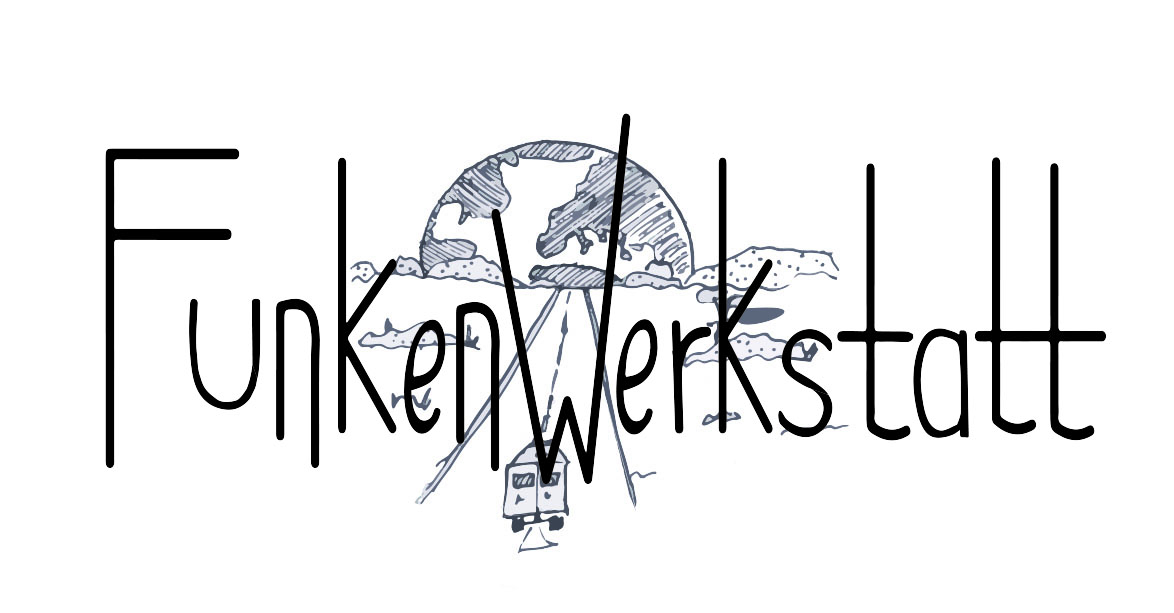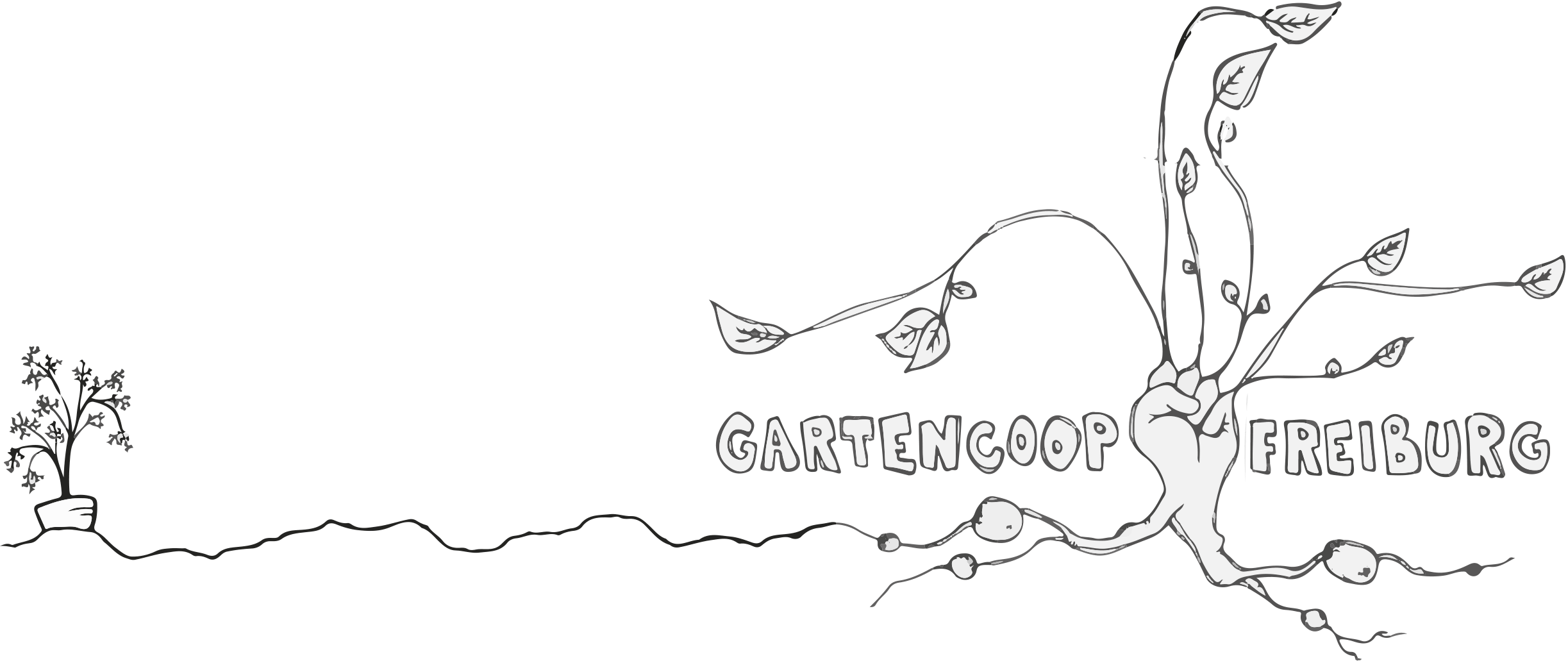Gartencoop – SoLaWi based in Freiburg

Ronny, with his forest garden project of Permakultur Dreisamtal e.V., got us to think about how globally the existential question of food could be solved in the future. In Freiburg, we found an agricultural project which represents a model of how we can shape an alternative way of living with humans, the earth, plants and animals in order to contribute to societal change. It‘s about changing the food production so that environmental, resource-saving production methods and strengthened of small-scale structures are created.
The Garten Coop sees itself as part of a movement of solidary agriculture and is organized in a democratic way. Their goal is to produce healthy food that can be produced independently as possible from market pressures. In addition, the harvests are distributed equally within the community and regardless of the income of its members. Fairness and good working conditions for gardeners and farmers are the central aspects of the association.
In 2009 spurred on by such visions, a community of equal interests came together, so that only two years later, a lease agreement for a nine-hectare land could be signed in Tunsel near Breisach. The Garten Coop started with 170 members and grew up to 260 members today. The running costs of the whole project will be supported by the principle of „common economy“. This means that the financial burden is shared by all members and everyone is equally involved in collective ownership.
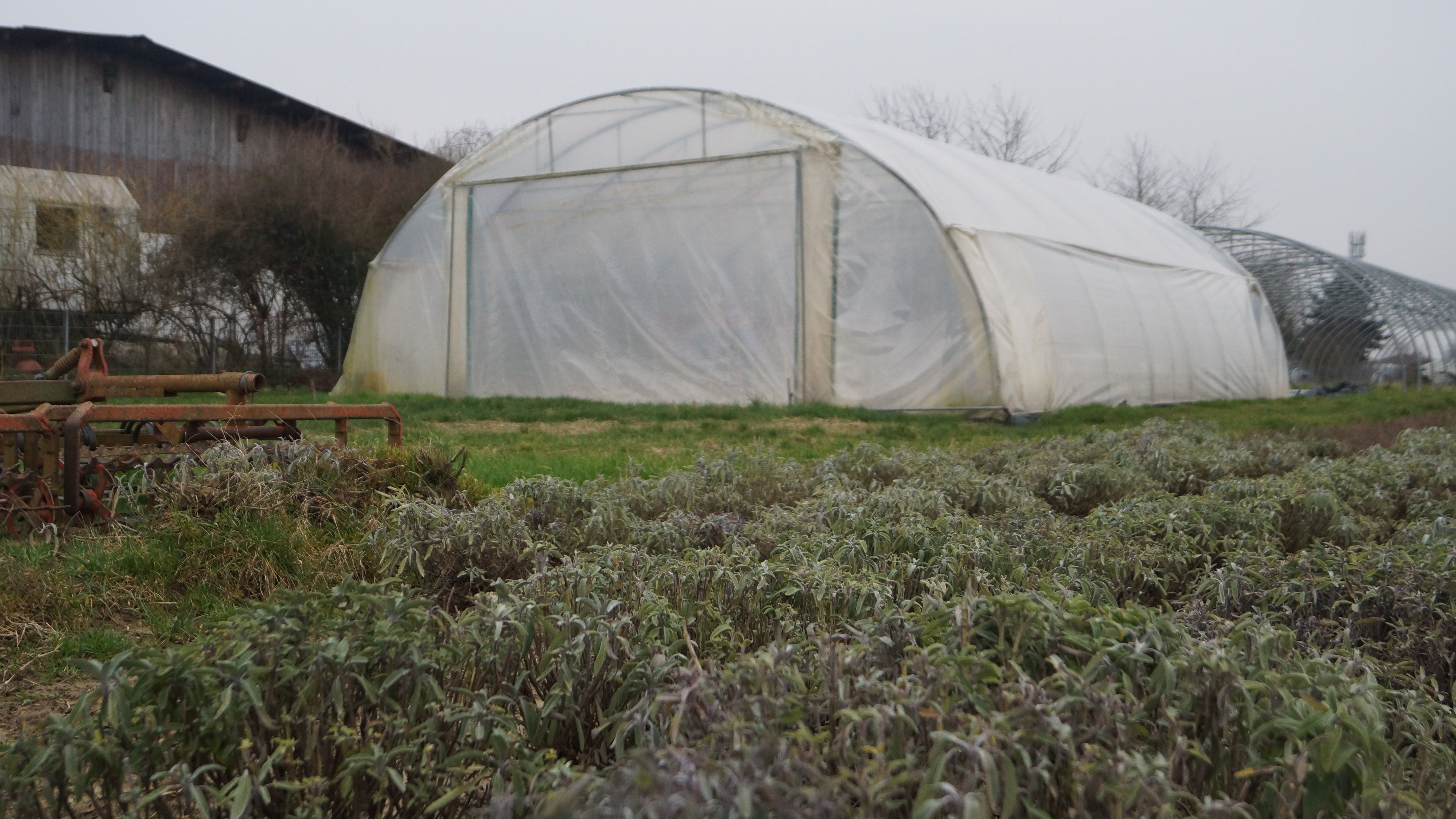
The infrastructure of the farm in Tunsel set many things and gave the borders of the project. The farm has several large barns for housing agricultural machinery and production resources which is own by the Community. In the middle of the courtyard is a large container that is used by the gardeners and members as an office, operations center and kitchen. After harvesting, the vegetables get washed in the yard and processed for bringing them to Freiburg. The aim of the Garten Coop is to produce climate-friendly and locally. For this purpose, a separate storage room and the production of their own fertilizers is essential. Cows provide the fertilizer for the field, thus creating a closed production cycle. The Garten Coop takes care of the animals, even if one gets sick, the community decides how the situation is handled. The cultivation of the varieties will also be decided together.
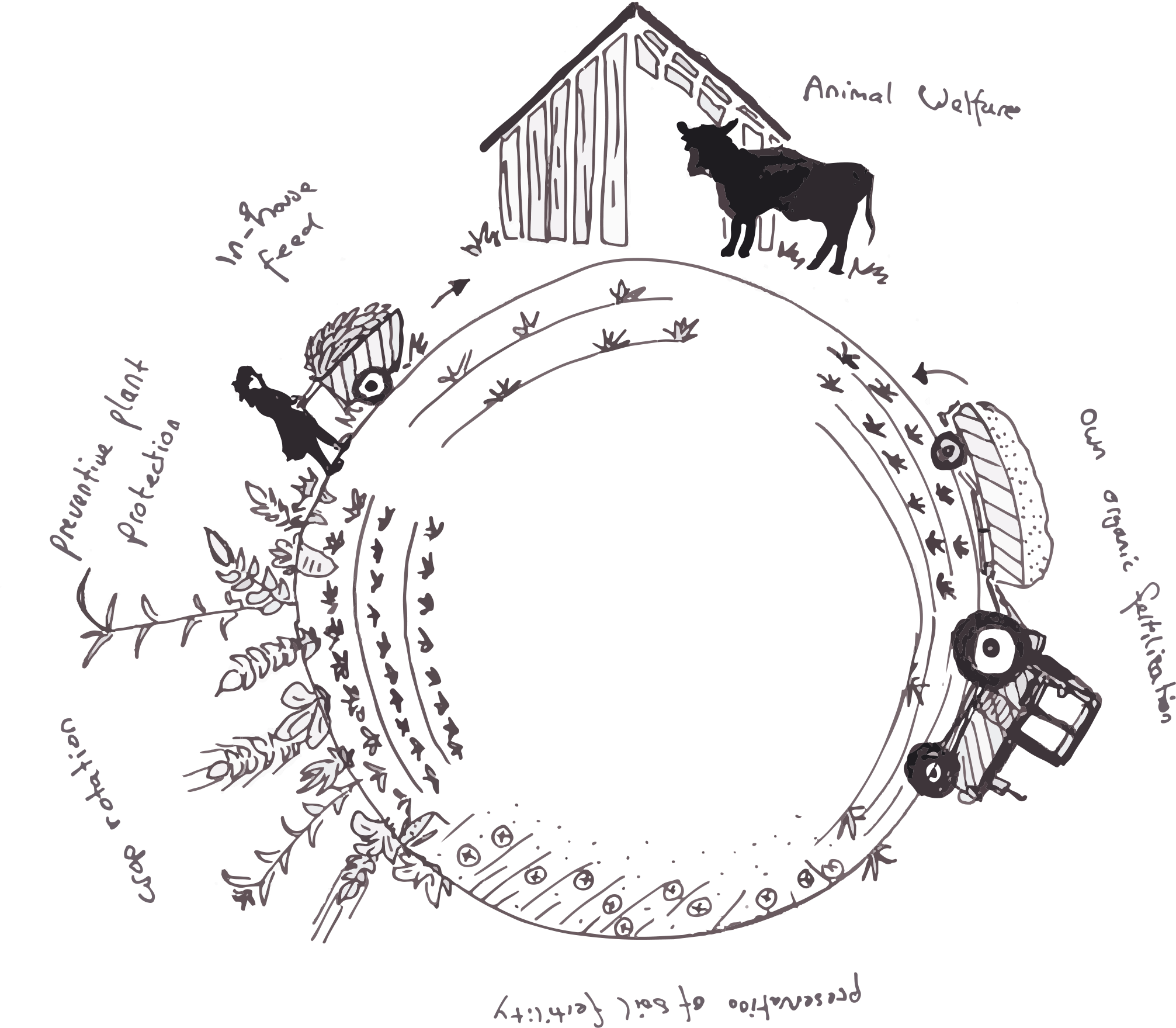
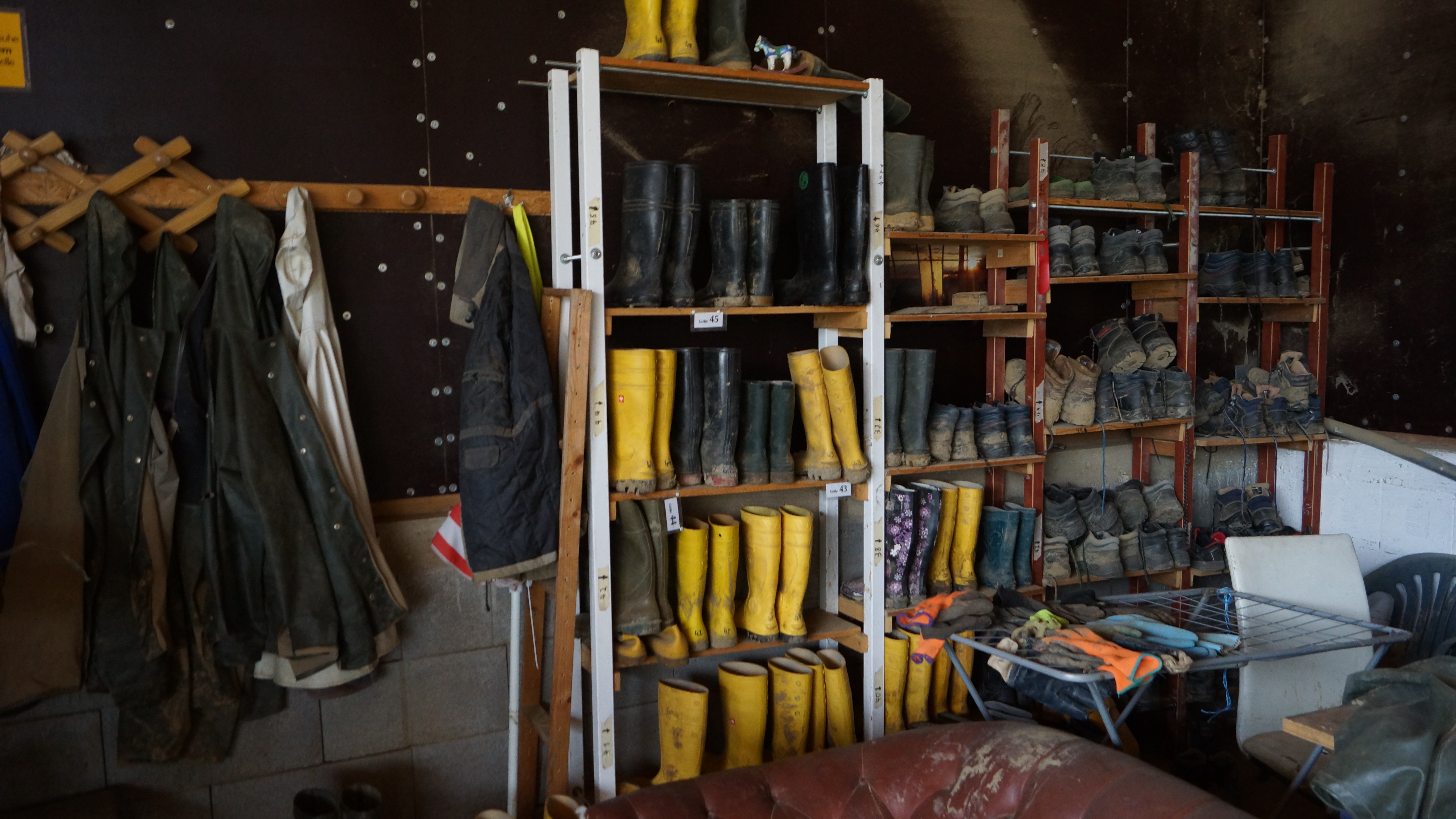
But how does the association manage to supply all of the 270 members?
Lukas, one of the gardeners, told us about the beginnings, in his lecture about the cultivation planning of the Garten Coop: “In 2011, there was no concrete cultivation plan. First, 170 lettuces – one per member – should be harvested weekly. Only 2 hectares were planted with the best soil quality, the rest of the 9 hectares was first planted with clover grass to promote the humus structure. In the second year, a cultivation plan was developed to serve 300 households.”
Fabian, a gardener has designed a plan for a twelve-year crop rotation. Various plant varieties are divided into strong and low-growing crops. The cultivation phases are then adapted to the nutritional needs of the plants. In the foil tunnel, the crop rotation changes every six years. Cucumbers, tomatoes, peppers, salads, corn, kohlrabi, arugula, radishes, beetroot and sweet potatoes are grown here.
Strongly nutrient-demanding plants are plants such as pumpkin and cabbage. Medium nutrient-demandings are carrots and spinach, for example. Weak nutrients-demandings are legumes, herbs and cress. Fertilizing with clover which will planted in the field.
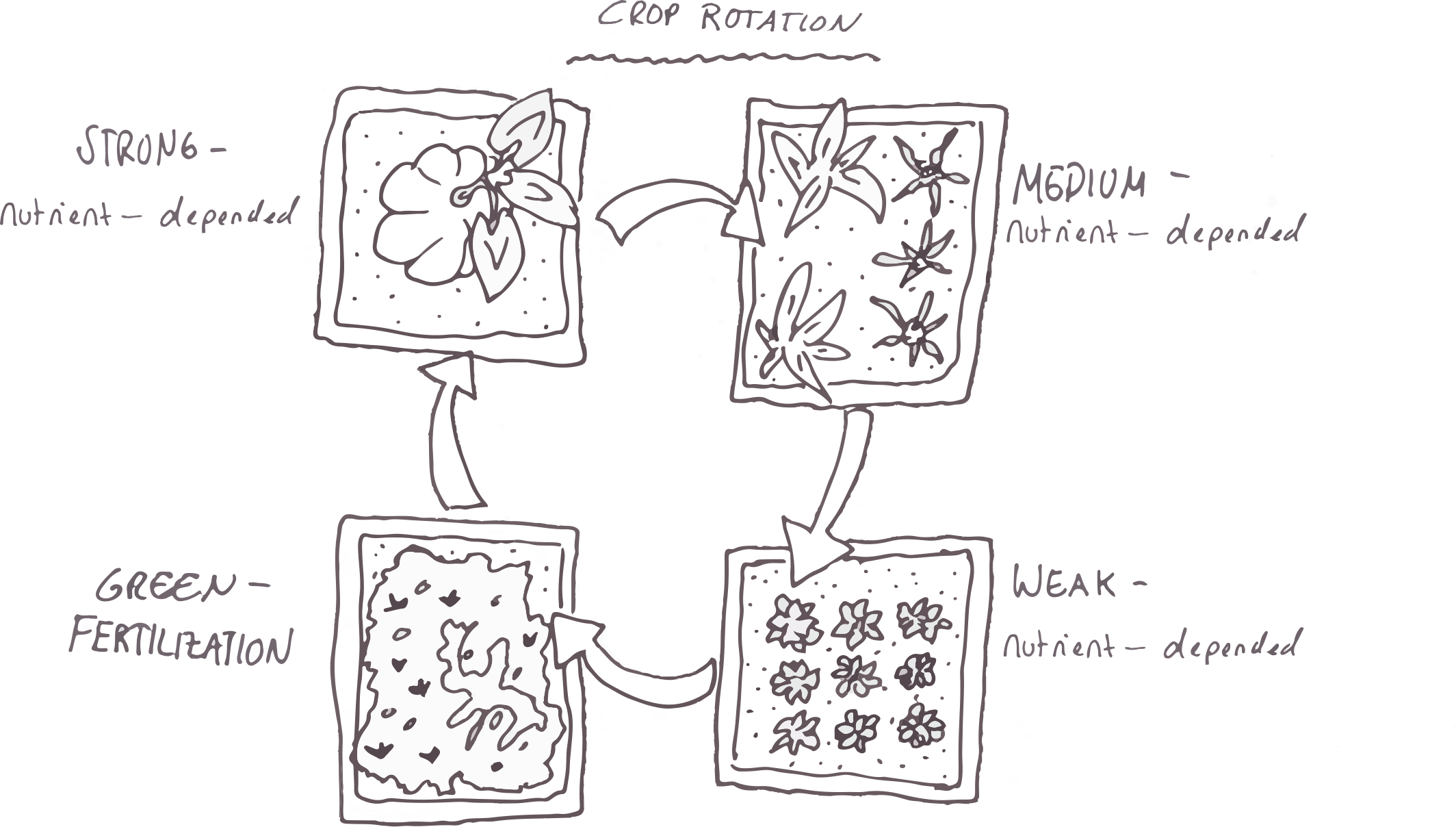
As the financing of the cultivation is carried by all members, growing the vegetables can be independently of yield and competition. This concept makes it possible to grow not only high-performance varieties, and thus contributes to the preservation of rare vegetables. These are immensely important for biodiversity. „In our project, we have the freedom for cultivation experiments, but it has nevertheless an agricultural pragmatism, so in the tomato example, we have the main variety Tika. Tika accounts for about half of the stock, there are still 3-4 minor varieties and a few varieties of trial, „says Lukas. „It‘s about whether the plants are profitable and able to supply the community, but they are not sick and that they can be distributed well. It is especially important that they do not burst too fast.“
The lecture by Lukas is exemplary for the communication between the cultivation team and the members. Why were certain crops selected and why do only certain vegetables end up in the boxes at the distribution point?
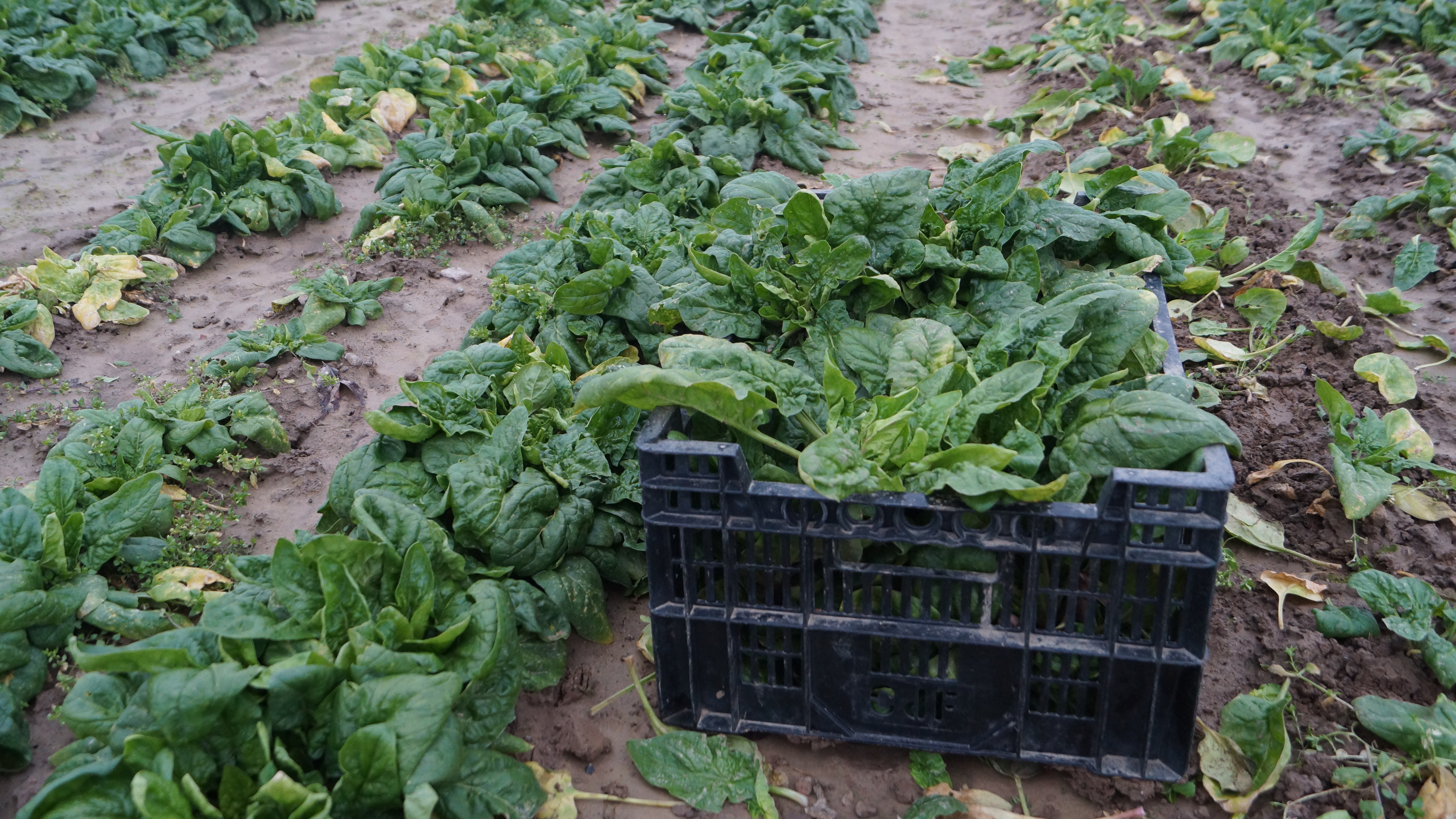
Currently, the Garten Coop produces flour and different vegetables, but they can`t afford a complete supply because the yard area is not big enough, or the plants wouldn’t simply not grow there, like cacao or bananas, which are inseparable part of life quality for many people. Not all wishes can be put into reality, for example, nutmegs pumpkins or strawberries, would grow magnificently in Tunsel, only the further processing or harvest would be too much work. „In principle, however, anything is possible, if only enough dedicated members will be find,“ says one of the gardeners Vincent to us in an interview.
„In the Garten Coop quite different realities comes together. It‘s a compromise between people‘s utopias and the reality. We must find compromises, how we can put these things together. “
As there was a high turnover among members and there were also changes in the team of gardeners, it is particularly important that the communication between the cultivation team and the remaining members works well. Via an e-mail distribution list, members receive news about the field and are invited to events and member operations.
Lukas, who has been a long time part of the project, will soon leave the Garten Coop. „We had some conflicts in the team, which was also because there were many changes. There are certainly 15 different gardeners who are working in different constellations here. Despite such conflicts, we are now entering the 8th year and the project exists and operates at a certain size and is still in a process of progress. Different working groups are contributing, and I think that is very important, because this idealistic cultivation can only take place when people take the self-governing cooperative seriously and invest time. „
The Garten Coop is a flagship project in solidarity agriculture, with a strong involvement of members at all levels. Not only on the field, but also in the organization. Different working groups have been formed in order to be able to solve the different tasks.
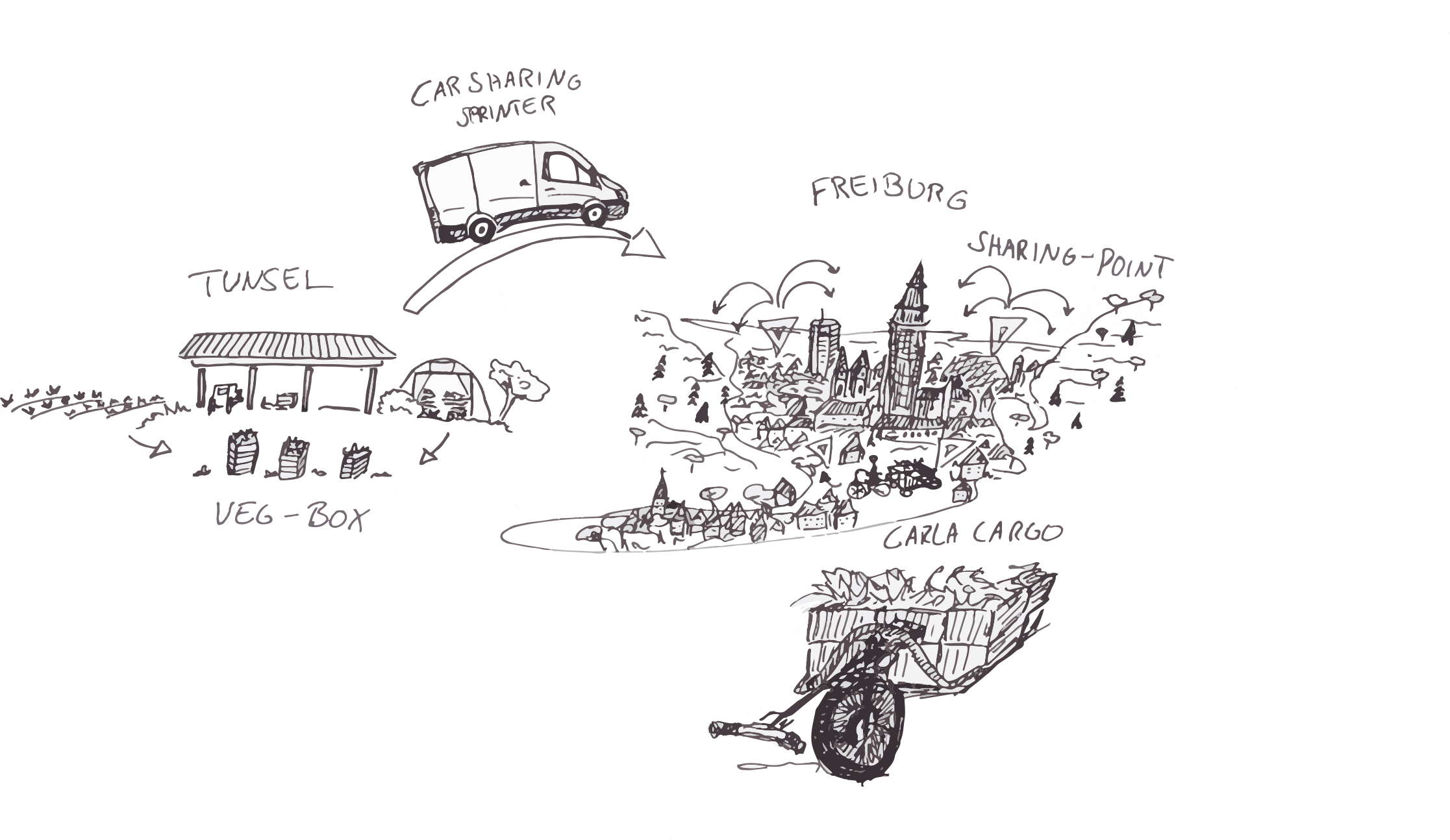
Values are taught through educational events, such as crop or cultural care assignments. Each member should come to at least four missions a year. „That shows just how much work is needed until the carrot is on the plate, it must be sown and flamed, will be weeded by hand and chopped, then comes the harvest and so we have some of it in the winter, it is stored in the cellar. For distribution, it is then taken out again and washed. That‘s a lot of work steps and if you know what you mean, that‘s again a whole different appreciation for food, „says Vincent.
During the assignments, the agricultural practice will be introduced under guidance in different areas. From the dunging of the stables and liberate the plants from the weeds, to the harvesting of spinach leaves, experience can be gained in many ways. Most of the missions begin in the early morning. After a few hours you meet for coffee or tea. With a light meal in the stomach, it goes back to the field until there is a delicious lunch that is always cooked from the fresh vegetables harvested on the field. Especially it is nice to talk with the others on the field while working, this strengthens the sense of community.
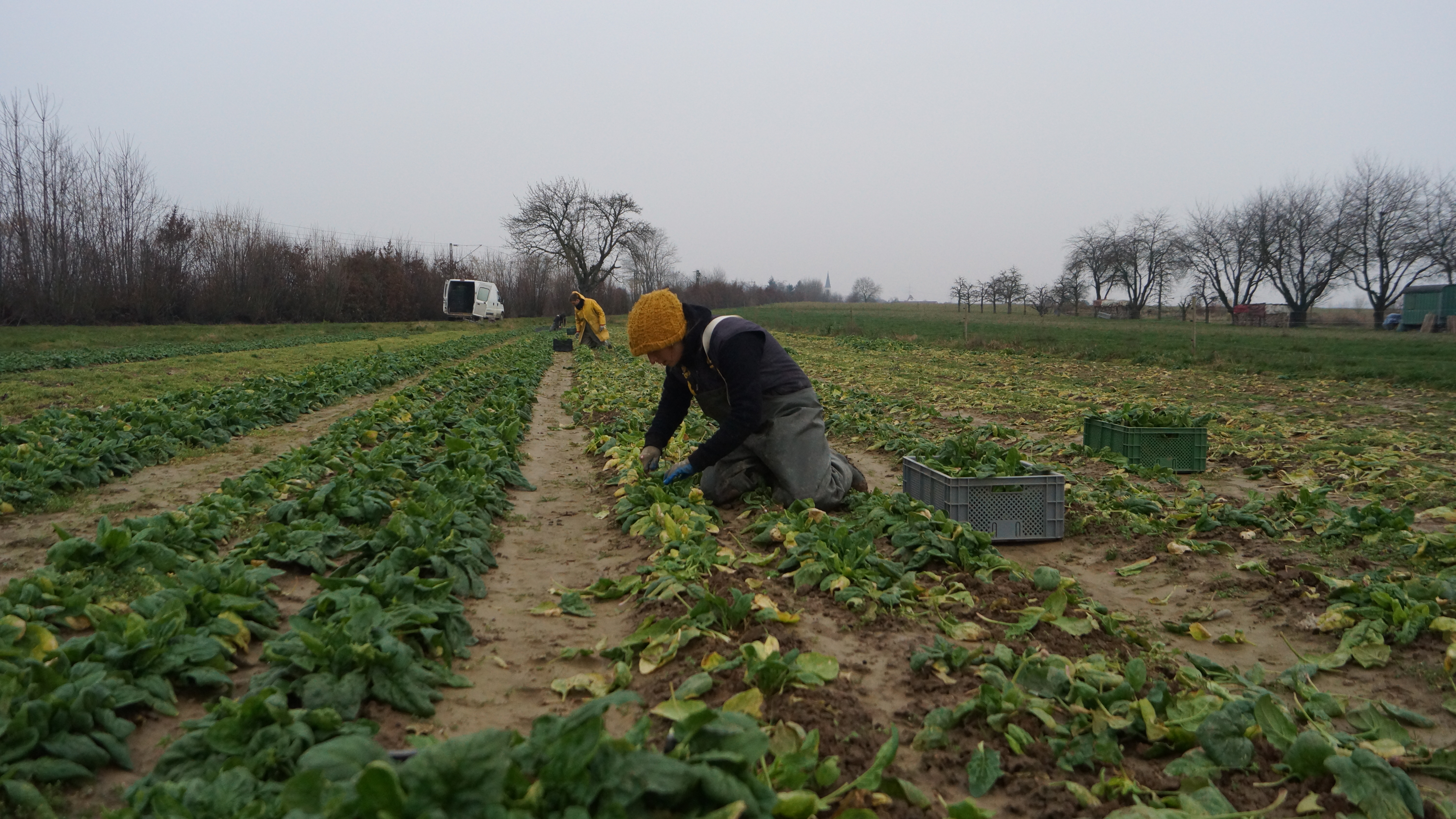
In the future, the Garten Coop wishes further cooperations. From the Demeter nursery Piluweri, which is one of their cooperation partners, they received, young plants for example. In addition, there is the possibility that they give their own seeds to Piluweri. Collaborations like this shows how important good networking is.
Not only the anticipation to cycle to the distribution point at the weekend, to pick up the delicious vegetables and to prepare it together with your friends, but also the opportunity to get involved, participate and learn makes the Garten Coop so special for us. We are curious how the Garten Coop will evolve in the future and we are looking forward to support them in the upcoming tasks.
Nature, Culture
Garten Coop in Freiburg
Garten Coop sees itself as a member of the movement solidary acriculture. How we can shape an alternative way of living with humans, the earth, plants and animals in order to contribute to societal change? The Garten Coop wants a change in food production so that environmental, resource-saving production methods and strengthened of small-scale structures are created.
